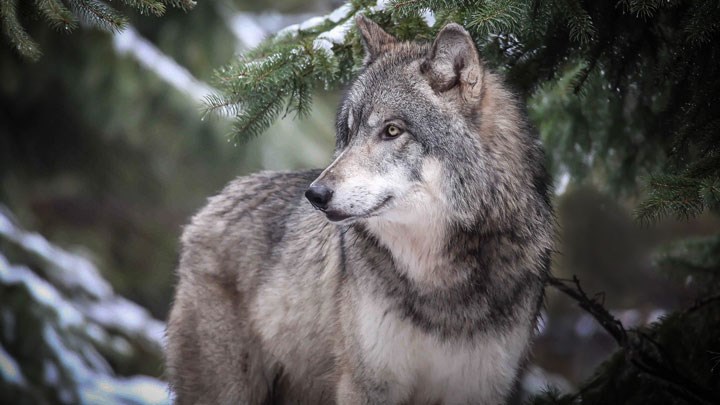
by Mark Chesnut - Thursday, November 17, 2022

The ongoing saga of wolf management in the western United States took yet another unexpected twist on Tuesday when a Montana judge on Tuesday rolled back some wolf hunting regulations in the state to what they were in 2020. A temporary restraining order, issued by Lewis and Clark County District Court Judge Christopher Abbott, takes effect immediately and will remain in effect until Nov. 29, the day after representatives of Montana Fish, Wildlife and Parks (MFWP) are set to make legal arguments in the case.
Pushed by animal rights extremist groups WildEarth Guardians and Project Coyote, the judge’s restraining order puts MFWP’s 2022 wolf management plans on hold while the case is being decided. It reinstates wolf management units (WMU) 110, 313 and 316 as they existed in the 2020 wolf regulations. WMU 110 borders Glacier National Park and WMUs 313 and 316 are north of Yellowstone National Park. It also lowers the wolf harvest limit by reinstituting the quotas for WMU 110, 313 and 316 as they existed in the 2020 wolf regulations, which are two wolves in WMU 110 and one wolf each in WMU 313 and 316. Wolf hunting and trapping in WMU 313 is now closed.
The restraining order also restricts hunters and trappers to harvesting five wolves total per person, per season, rather than 10. Lastly, it prohibits the use of snares as a legal method of taking for trapping wolves.
MFWP Director Hank Worsech said his agency will comply with the temporary restraining order but defended the state’s science-based wolf management plan, which is under fire by animal rights extremist groups.
“We have a healthy and stable population of wolves in Montana,” Worsech said, in a statement released after the restraining order was announced. “We’ve proven we can manage wolves across the state and will continue to do so. We will comply with the judge’s order and look forward to the opportunity to defend good science and management strategies.”
While the judge stopped short of giving animal rights extremists what they really want—a complete ban on hunting and trapping wolves in the state—they were emboldened by the partial temporary victory, ignoring the scientific facts that show wolves must be managed like every other predator and prey species.
“Folks across the world are collectively celebrating that Yellowstone’s wolves are now mercifully safe,” said Project Coyote’s Michelle Lute in a released statement. “This temporary restraining order is a critical cessation of the irreparable harm being waged on wolves and wildlands.”
As hunters would expect, the National Rifle Association has been involved in the wolf debate for nearly two decades, standing with hunters and supporting wildlife science and legal, regulated hunting as a wildlife management tool. In fact, the NRA and Safari Club International regularly remain in the news over lawsuits regarding the gray wolf delisting. They work alongside state wildlife agencies and wildlife conservation groups through the courts to uphold states’ authority to manage recovered gray wolf populations.
Yesterday’s restraining order came eight months after a federal judge in California restored federal protection for gray wolves across much of the United States. The decision in February marked a setback for scientific wildlife management and a victory for those who wish to see the species managed based on emotion and politics. However, the ruling did not apply to wolves in Montana, Idaho and Wyoming, where populations remain under state management, and in New Mexico, where the gray wolf subspecies known as the Mexican wolf is already protected.
About the Author
Freelance writer Mark Chesnut is the owner/editorial director at Red Setter Communications LLC in Jenks, Okla. An avid hunter, shooter and field-trialer, he has been covering Second Amendment issues and politics on a near-daily basis for over 20 years, previously serving as editor of the NRA’s America’s First Freedom.
E-mail your comments/questions about this site to:
[email protected]
